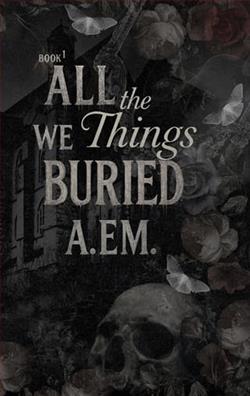Page 117 of Grave Danger
Zahra turned on the Disney Channel for Yasmin, locked the cottage door on her way out, and took a walk around the compound. She needed time to clear her head and take stock. And make sure they were alone.
She’d brought enough food for a week, so there was no need to make a run across the bridge to the convenience store on the mainland. That was a good thing. Thousands of Floridians had surely seen her photograph on the local news, and she needed to make sure no one recognized her. She supposed it helped that most people were “on the lookout” for an “Iranian mother with a child.” Unless she dressed up Yasmin in a Princess Jasmine costume, covered herself in a full-body chador, and started ululating in the public square, the typical Martin County resident probably wouldn’t spot them.
The compound was well maintained, but Zahra and Yasmin were indeed alone. Zahra tried to recall the off-season maintenance schedule so that she could prepare for possible visitors to the property. Swimming pool cleaner on Mondays. Landscaping team and insecticide sprayer on Tuesdays. Some guy with a small tractor came to roll the clay tennis court every other week. None of them had reason to come knocking on the door to the guest cottage, even if there was a car in the driveway. They did their job and left.
Zahra walked to the east side of the property and followed a woodchip pathway up the incline through the tropical garden. She spotted banana shrubs, angel’s trumpet, bird of paradise, and other gems of the subtropics, all presented in their natural beauty, without the overly manicured look that seemed to dominate south Florida residences. At the top of the hill, just high enough for her to see over the tops of palm trees to the Atlantic Ocean, was an open space. It had easily the most beautiful vista onthe grounds. And it was the one place that made the property distinctly Muslim.
Zahra stepped to the center of the clearing, where a square deck with a thatched roof was supported by four posts. Except for two locations—a cemetery and a bathroom—Muslims could offer the five daily prayers virtually anywhere. The owner had chosen this spot, facing northeast, though it looked more like a tennis hut than amusalla, probably because the local building code was more accommodating to the former than to a private place of worship.
Zahra found a prayer mat in a storage chest and placed it on the deck. When away from home, she normally used a prayer app to findqibla—the direction facing Mecca—but her cell phone was wrapped in aluminum foil to prevent tracking by police, so she trusted that the owner had positioned his prayer space properly. She had no Quran, but there was atawla, a foldable X-shaped bookrest, before her, engraved with a familiar Islamic verse, which she read aloud to herself. Translated, it read:
verily, with every hardship comes ease.
It was a popular verse, and billions of people around the globe found comfort in it. Zahra, too, found the words comforting on a spiritual level. But under these circumstances—on the run with Yasmin—it was a bit unsettling to find this particular verse on display in her chosen hideaway. The fact that the owner had selected it for his prayer space wasn’t surprising: Quran 94:5 was one of those verses that could be found framed and hanging on the wall in millions of Muslim homes. Zahra’s problem with it was personal: she’d seen the same verse, framed and on display, when visiting Imam Reza in Tehran.
That meeting had been well after the wedding ceremony. In fact, it was the last time Zahra had seen the imam before his testimony by videoconference in the Hague proceeding. She’d gone to him seeking guidance after Ava’s arrest and imprisonment.
“What troubles you, Zahra?” Imam Reza asked.
Zahra was seated in the chair facing his desk. She spoke in a soft, respectful tone. “My sister, Ava. I went to visit her today at Evin.”
The imam’s eyes clouded with concern. “You need to be very careful about that. Your sister is in serious trouble.”
“I’m afraid she has only made things worse.”
“How?”
“She lied to the morality police.”
His concern deepened. “Lied? How?”
Zahra collected herself, then continued. “She said she wears her hair short with Farid’s permission. She told them that she cut her hair while she and Farid were living in London.”
“And that was a lie?”
“Yes,” Zahra said with urgency.
“What is the truth? You must tell me, Zahra.”
She answered quietly. “She cut it last week at a protest against the hijab laws.”
The imam drew a deep breath, then offered words of praise. “You have done the right thing by sharing this information with me, Zahra.”
He picked up the phone that was on his desk.
“Who are you calling?” asked Zahra.
“You can go now,” he said. “This is in my hands.”
“Who are you calling?”
The imam gave her a stern look, a warning. “You can go, woman.”
A cockatoo cawed from somewhere in the garden, bringing Zahra back to her more immediate problem. She placed the prayer mat back in the storage bin and walked back to the cottage. The front door was locked, just as she’d left it, and she used her key. The door opened a few inches but then stopped, having caught on the chain, which gave her concern. She hadn’t told Yasmin to fasten the chain lock, though she knew how to use the one at home, albeit with the help of a stool to reach it.
Zahra spoke loudly through the opening. “Yasmin, it’s me. Open the door.”
She waited, but there was no response.















